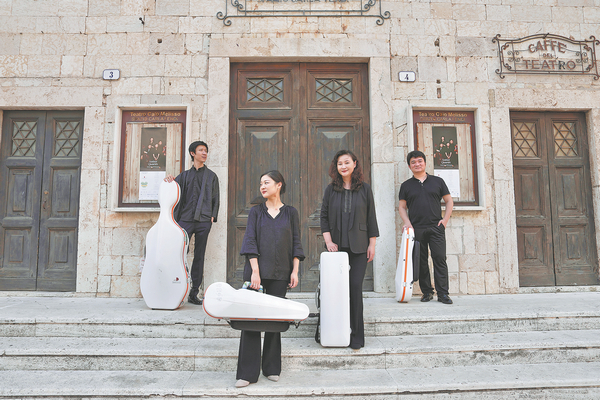

While Debussy's impressionistic textures evoke the subtleties of light and nature, Zhang's Totem paints a vivid soundscape of China's rural landscapes with a deeply personal voice. The pairing felt less like contrast and more like reflection — each work illuminating the other.
Throughout the performance, the Amber Quartet embodied the spirit of cultural fusion. The members' deep roots in both traditions lent the concert not only technical brilliance but also emotional resonance. It became more than a recital; it was a statement about music's power as a universal language.
"When the audience erupted in applause, we felt proud that we had succeeded in building a vibrant bridge between cultures through music," Yang says.
Monique Veaute, artistic director of the Spoleto Festival, first encountered the quartet during a visit to China and was deeply impressed by their artistry. It was fitting that they performed at Spoleto, a festival founded in 1958 by composer Gian Carlo Menotti, with the aim of fostering a dialogue between the East and the West — an idea reflected in its original name, Festival dei Due Mondi (Festival of Two Worlds).
Each summer, the picturesque town of Spoleto, with its ancient architecture and sweeping vistas, becomes a global stage for the arts.
The ensemble consists of first violinist Ning Fangliang, second violinist Su Yajing, violist Qi Wang and cellist Yang, all faculty members at the Central Conservatory of Music in Beijing.
In 2013, the quartet achieved a milestone by winning three awards at the Asia-Pacific Chamber Music Competition in Melbourne. It was the first time a Chinese quartet had won the competition.
Two decades on, the quartet continues to redefine what it means to perform across cultures — not by fusing traditions into sameness, but by allowing each voice to sing in harmony and contrast, creating something wholly new.
chennan@chinadaily.com.cn